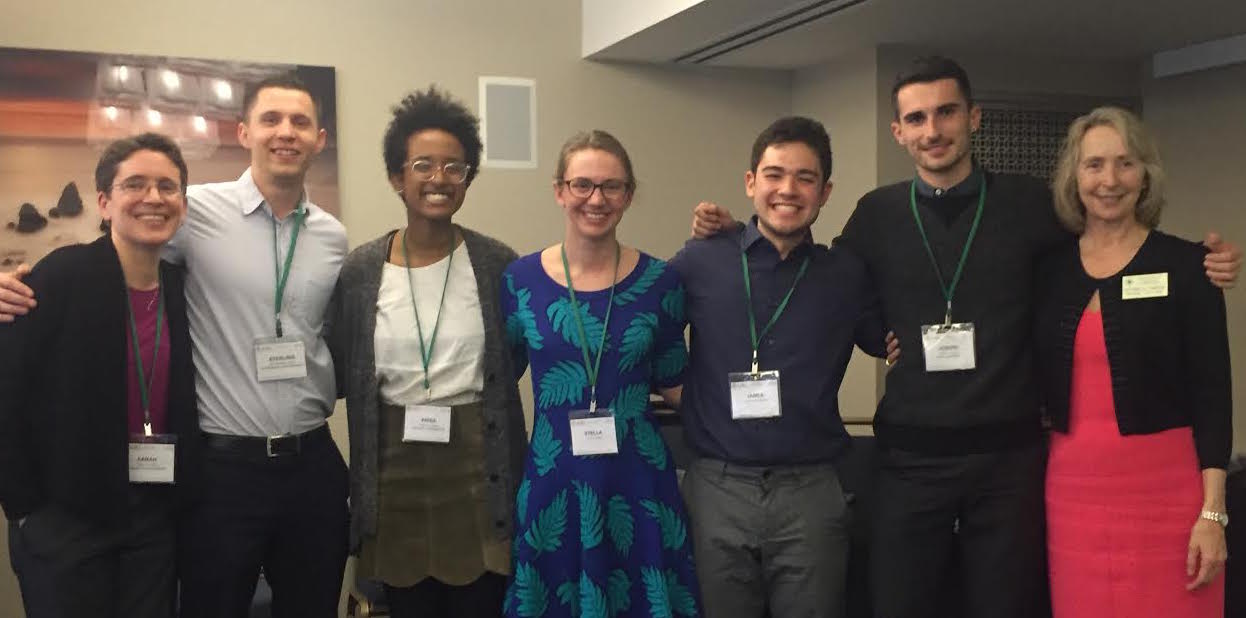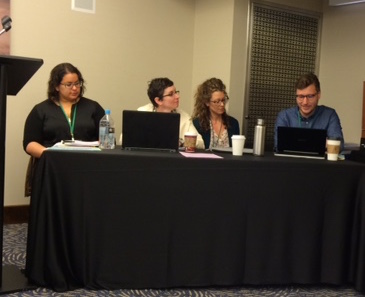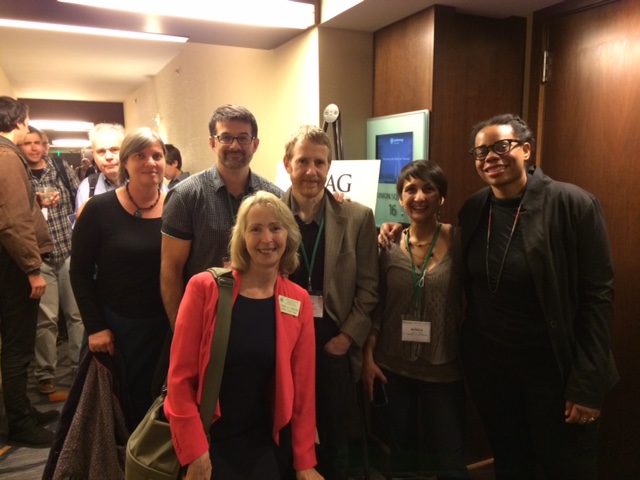Thanks to everyone for participating in our twelve Relational Poverty Network sessions at the 2016 AAG Meeting in San Francisco!
RPN SUBCONFERENCE PROGRAM
Wednesday, March 30th
| Session 2147 | 8/9.40 am | Relational Poverty 1: Uneven spatialities and the production of poverty knowledge | Union Square 20, Hilton Hotel, 4th Floor |
| Session 2447 | 1.20/3 pm | Relational Poverty 2: Alternative poverty knowledges | Union Square 20, Hilton Hotel, 4th Floor |
| Session 2547 | 3.20/5 pm | Relational Poverty 3: Undergraduate Involvement in Critical Poverty Studies | Union Square 20, Hilton Hotel, 4th Floor |
| Session 2647 | 5.20/7 pm | Relational Poverty 4: Welfare ‘reform’ and the urban geographies of poverty: Relational processes of support and punishment, resilience and displacement | Union Square 20, Hilton Hotel, 4th Floor |
Thursday, March 31st
| Session 3102 | 8/9.40 am | Relational Poverty 5: Authors meet critics: Roy & Crane’s Territories of Poverty: Rethinking North and South | Golden Gate 2, Hilton Hotel, Lobby Level |
| Session 3243 | 10/11.40 am | Relational Poverty 6: Solidarity Economy Post-Capitalist Practices and the Geographies of Exclusion and Marginalization | Union Square 16, Hilton Hotel, 4th Floor |
| Session 3443 | 1.20/3 pm | Relational Poverty 7: Race & Urban Encounter | Union Square 16, Hilton Hotel, 4th Floor |
| Session 3543 | 3.20/5 pm | Relational Poverty 8: Distribution with Dignity: Lessons from Food Banks in the Rural and Urban West | Union Square 16, Hilton Hotel, 4th Floor |
| Session 3643 | 5.20/7 pm | Relational Poverty 9: Law, governance and poverty management | Union Square 16, Hilton Hotel, 4th Floor |
Friday, April 1st
| Session 4119 | 8/9.40 am | Relational Poverty 10: Capital in the 21st Century and Multi-scalar Geographies of Inequality I | Continental 9, Hilton Hotel, Ballroom Level |
| Session 4219 | 10/11.40 am | Relational Poverty 11: Capital in the 21st Century and Multi-scalar Geographies of Inequality II | Continental 9, Hilton Hotel, Ballroom Level |
Saturday, April 2nd
| Session 5103 | 8/9.40 am | Relational Poverty 12: Author-meets-critic on Geoffrey DeVerteuil’s 2015 book Resilience in the post-welfare inner city: Voluntary sector geographies in London, Los Angeles and Sydney | Golden Gate 3, Hilton Hotel, Lobby Level |
CALL FOR PAPERS (closed)
Starting from the idea that poverty is a keyword of politics and policy, relational poverty work troubles individualized framings of poverty and instead posits conceptual frameworks, research methodologies, and pedagogies that shift from thinking about ‘the poor and poor others’ to thinking about relationships of power and privilege.
Launched at a historical moment of dramatic income inequality and enforced austerity in the global North, the RPN thinks across geographical boundaries to foster a transnational and comparative approach to poverty research. In doing so, it pays attention to new global geographies of development, new forms of regulating poverty, and analyses from those often marginalized by poverty debates.
‘Poverty’ as a concept is in contention around the globe. It is promoted as a problem to be solved by development institutions, contested as a problematic object/framing by popular movements, and made invisible by (some) governments. Static notions of poverty as an object apart from normative, aspirational ideals of the modern subject, govern people and limit political imaginations. A transnational approach to researching poverty can unleash new theorizations, concepts and politics that challenge neoliberal individualized framings of inequality.
We invite submissions for sessions on relational poverty research and activism which engage a radical rethinking of the root causes of poverty around the globe (in both poor and rich countries). We are not focused on poverty as a governable object, rather these sessions will engage poverty as a condensation point for revealing, researching and acting upon multiple simultaneous processes: racialization, criminalization, gendering, discrimination on basis of ability, citizenship, age and generation. These sessions will put participants into new conversations with researchers from other contexts to stretch their thinking, consider new comparisons, seed new collaborations and expand thinking about the relations between poverty, privilege and power.
These sessions will be designed to generate cross-boundary conversations and collaborations (including across disciplines, geographic boundaries, theoretical and methodological approaches). To this end, we invite papers, panels and innovative formats for presenting ideas that intentionally produce conversations rather than just reporting of results. The goal for this series of sessions is to expand relational poverty thinking by disrupting economism, engaging postcolonial theorizing, developing concepts that challenge a hierarchical geopolitics of knowledge production.
Potential themes which intersect with Relational Poverty Network research include (but are not limited to):
Alliance politics
Encounter
Race and racialization
Transnational theorizing
Poor people’s movements
Poverty governance
Middle class poverty politics
Space, place and poverty difference
Rethinking development
Ontologies of poverty
Epistemologies and methodologies for poverty/privilege
Relational comparison
Economic Subjectivity
Community Economies
Discourses and representations of privilege
Poverty knowledges
Care/poverty interconnections
Gender
Political economies of poverty/privilege
Mobilities and poverty/privilege
Artivism
Food and hunger




